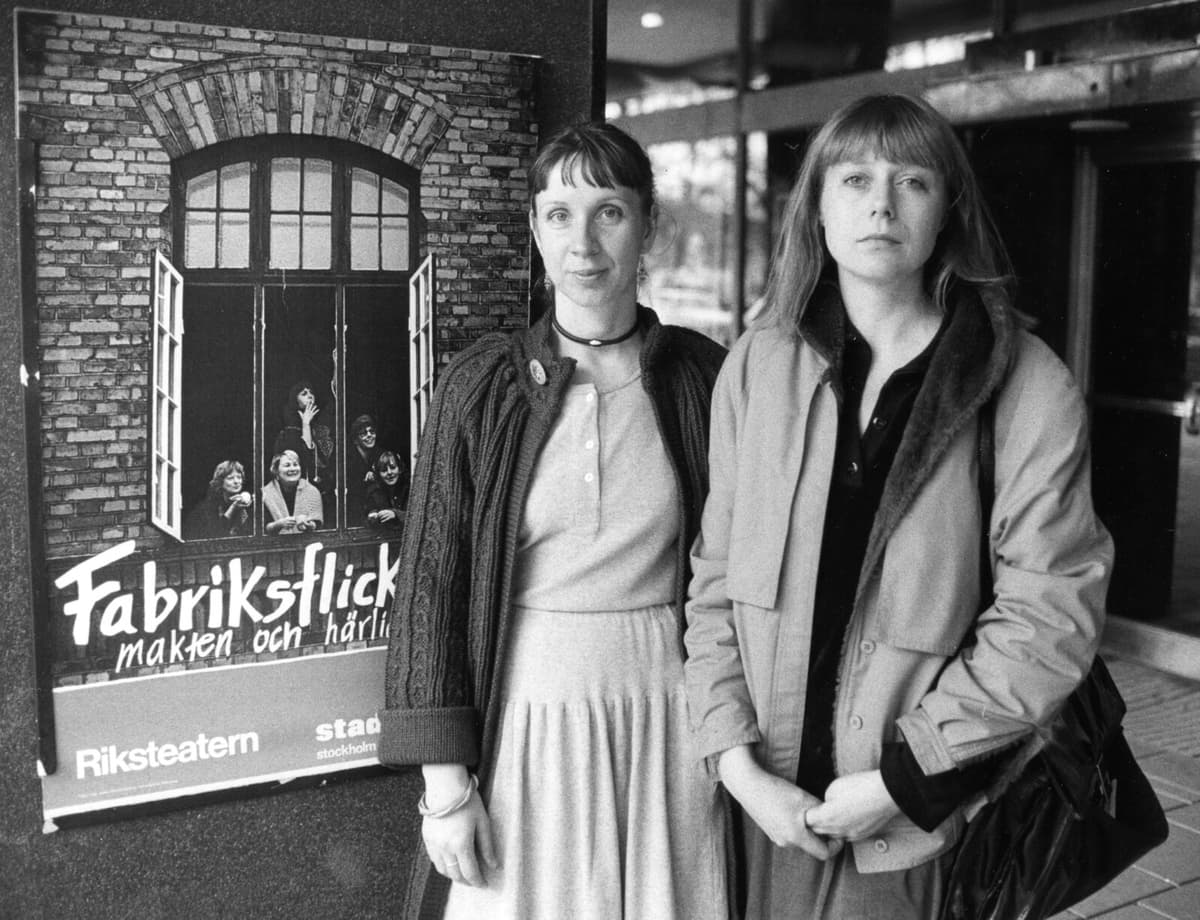More and larger roles for women, that was one of the goals when dramatists Garpe and Osten made theatre in the 70s. "Oh oh oh girls, we must raise our voices to be heard", was a line in the classic cult song from the play "Girl Talk" (1971), set to music by Gunnar Edander.
The important thing for us was to formulate a theatre that didn't just portray men. That's how the theatre scene looked, for men by men. We lifted women up to main characters. We wanted to portray women's lives, says Margareta Garpe, who tells that it wasn't always easy.
We had to fight quite a bit, especially against our male colleagues.
Current Drama
She and Suzanne Osten met at a children's party and both wanted to do something for the girls at the youth centres. So "Girl Talk" came about. But the men got the resources – "Goodness girls" was only offered a narrow strip of the stage.
Behind it stood an Ibsen play by a male colleague who took up all the space. But it forced a artistic expression and didn't become so bad.
Much of their drama is still current today, thinks Garpe. They portrayed silenced young girls, fought against women's images spread through porn and prostitution, and highlighted the importance of abortion rights.
Thin Ice
Both were "messing with their childhood" but Margareta Garpe didn't share the enthusiasm for children's theatre. For Suzanne Osten, it almost characterized everything, thinks Garpe.
She dared to venture out onto thin ice, with "Hitler's Childhood" for example. Then she made baby drama and nobody understood why you should play for toddlers with diapers.
Margareta Garpe thinks that the combative Suzanne Osten was needed.
She was very energetic and very funny. She was always slightly upset.






